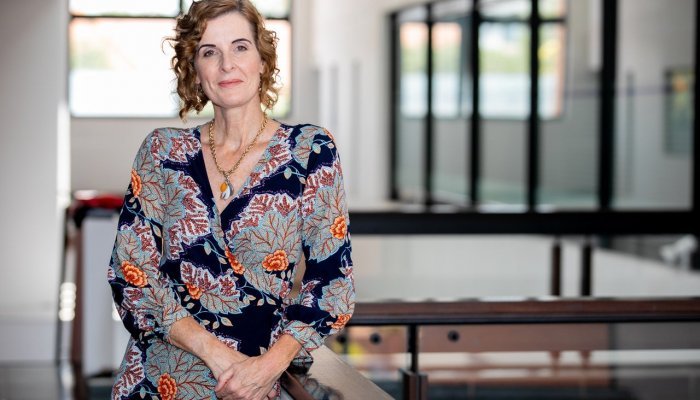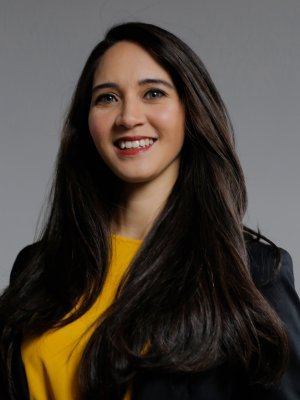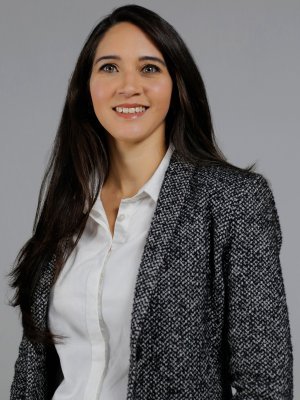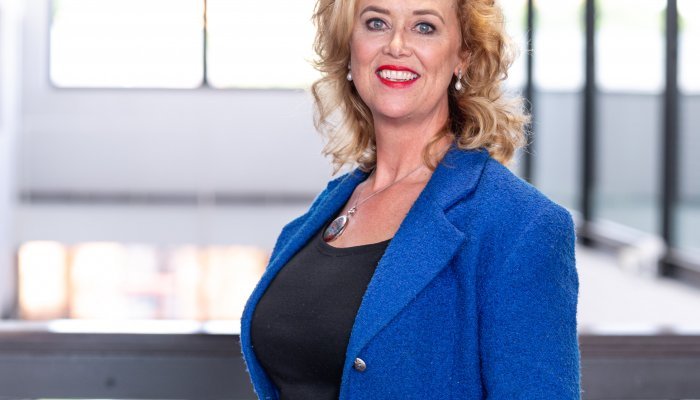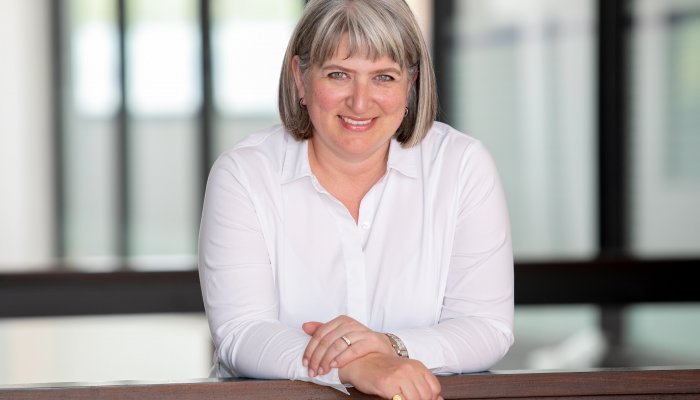Professor Albert Wöcke leads the GIBS Case Study Hub, formally established in 2019. He says GIBS has been producing case studies since its early history. “At the time, there was no real strategy – we were really looking for content for our classes,” he says. “We were teaching international cases and wanted something our students could more easily relate to.”
At a conference, he and Professor Helena Barnard connected with Ivey Publishing, based at Ivey Business School, University of Western Ontario, a leading business case study provider, currently with over 39,000 products in its collection. This developed into a formal agreement that saw Ivey publishing and co-branding top-quality GIBS case studies, complete with teaching notes. This includes peer reviewing and distributing cases, and GIBS cases are distributed internationally and used in more than 20 countries because of this relationship. Many have also been showcased and listed as bestsellers by Harvard Business School Publishing.
Since then, GIBS has developed a relationship with Emerald Publishing, a global business operating in 130 countries. Emerald launched the Emerging Markets Case Series and began soliciting case studies from GIBS for this.
“We began encouraging faculty members to consider case writing,” says Wöcke. “We had prolific writers, such as Professor Caren Scheepers. She was enormously important in the evolution of case studies at GIBS, and for easily the past 10 years, we’ve been the leading case-writing school on the continent.”
Dr. Tracey Toefy, lecturer and case writer, says she was fortunate that Scheepers offered to collaborate with her on her first case. “She provided valuable input, mentorship and encouragement while we wrote the case and through the publication process,” she says. “Through writing cases, I have engaged with phenomenal people doing amazing things in their businesses. It has been inspiring and an honour to be trusted to tell their stories and present them in our classrooms.”
Scheepers also approached Dr. Motshedisi Mathibe, a lecturer at GIBS, when she was a new faculty member, to ask her to consider writing cases. “At first, I didn’t really understand the process,” Mathibe says. “But as we worked through writing a case together and after I had attended one of her workshops, I realised that cases are about bringing alive the experiences of entrepreneurs in the classroom. And how exciting is that?”
She says writing cases has taught her the skill of storytelling. “I grew up with my grandparents, and every night we’d sit around the fire, and they’d tell stories. Now I’m able to relive that experience – not just listening and learning but putting stories down on paper. It’s helped me to wear the shoes of entrepreneurs and to learn how to incorporate theory into the story.”
Making things official
It was in 2019 that the GIBS Case Study Hub was officially established to coordinate the cases and increase the volume and reach while maintaining the quality.
“This is important, not just for South Africa, but for Africa – to make sure that the voice of the African continent comes through and that we will be teaching local cases that resonate with African managers and businesspeople,” says Wöcke.
However, just six months after the GIBS Case Study Hub was established, Covid-19 turned the world upside-down. In hard lockdown in 2020, together with Professor Danie Petzer, head of research at the time, the Case Study Hub team decided to focus on a series of mini cases on Covid-19. They set a tight deadline.
“We had to do something quickly,” says Wöcke. “The pandemic was unprecedented, and we needed content to teach in our classes. Case studies with complex problems are perfect for that.”
By July 2020, the first cases were published. The series was picked up by Emerald, and GIBS produced 14 in total – a remarkable achievement given the time frame.
Wöcke believes that the secret ingredients were that GIBS faculty members are well-connected to the business community (which meant that great stories were available quickly) and that they know how to teach case studies, which meant they could quickly adapt to teach the new cases online.
In 2021, the Case Study Hub produced another series of mini cases on recovering from Covid-19 and is busy with the third set for 2022.
The Case Study Hub produces over 20 cases per year, runs several faculty support workshops, and offers mentoring to support new faculty writers and MBA candidates in authoring case studies.
Best case scenarios
The GIBS Case Study Hub and its writers have produced exceptional work, and 2022 has been a bumper year of awards.
- A case authored by professional associates, Amy Moore and Verity Hawarden, Abelana Game Reserve: Community Partnership Driving Shared Value in Ecotourism, won the Financial Times’ teaching case award for Responsible Business Education. The multifaceted case incorporates not only ecotourism, but partnerships with the local community, thereby creating shared value for all stakeholders, and tackles issues such as sustainability, upskilling of workers, job creation and collaboration.
- Amy Moore and Dr. Tracey Toefy placed second in ‘The Case for Women’ 2021 competition hosted by Emerald with their case Mitti Café: Enabling Disability Inclusion in India through Scalable Business Model, which focuses on themes from social entrepreneurship to social inclusion, business model innovation, sustainability, strategy design and strategy execution.
- Professor Marianne Matthee and Amy Moore’s case study, When Foreign Direct Investment is Threatened: Rio Tinto and Richards Bay Minerals, placed second in The Case Journal compact case competition run by Emerald Press.
- Moore has also been appointed to Emerald Emerging Markets’ editorial board as an associate editor – a recognition of her expertise and a great feather in GIBS’ cap.
A valuable asset
Professor Marianne Matthee, head of research at GIBS, believes that case studies are an important contributor to the research outputs of GIBS.
“First, it allows us to ensure the societal impact of our research because the cases are embedded in or about actual businesses and the dilemmas that they experience, and it gives academics insights into practitioners, but likewise, it also gives practitioners insights into academia,” she says. “The Case Study Hub also allows us to further carve out our practice of research-led teaching.”
She says that case writing and teaching is also an important element in faculty development. It allows faculty to delve deeply into a particular business and a particular dilemma that the business faces. “That deep engagement with decision-makers in businesses and with business leaders really provides a level of understanding that amplifies teaching in a different format. It also enables us as GIBS to practise teaching in a Socratic style.”
Wöcke says on a practical level, writing its own content helps GIBS to avoid hefty copyright fees, but the main benefit to the institution of the Hub is that producing high-calibre case studies is a “really strong indicator of quality to the students and the world”, especially when the person who is teaching the case is the one who authored it.
“Case studies indicate how connected we are to the business community,” he says. “What's very important is that these cases are real-world issues, so we're at the front end of the decisions and the dilemmas that companies face. Of course, there are massive brand benefits when international educational institutions teach the cases we’ve written or GIBS case studies pop up in textbooks.”
Characteristics of great case studies
Moore says that the best case studies are not brag stories. “They need to be centred on an issue where the resolution is uncertain and something that can be taught in our classrooms,” she explains. The teaching note is also critical and encompasses the theory that underpins the case study mechanics.
Moore says that the benefit of learning through case studies for students is that they can put themselves into the shoes of a protagonist, applying theory to practical, real-world situations. She believes it’s important to have more case studies written in Africa.
“Context matters,” she says. “The context of Johannesburg is quite different to the context of Menlo Park, California. So if we're teaching leaders of the future, we need to use different types of examples, different landscapes for them to become aware of their own thinking and other factors that need to be considered for sustainable business and society generally.”
Wöcke adds that while a good case study needs a relatively complex dilemma and to align with theory, one of the advantages GIBS has in teaching its own case studies is that it’s often possible to bring the protagonist into the classroom which adds a unique experience.
Moore says that as case studies continue to evolve, trends include shorter case studies, more international collaborations, and new technologies, such as virtual reality, allowing an even more immersive exploration of the protagonist’s point of view.
Verity Hawarden was introduced to case study writing by Professor Margie Sutherland when she was doing her MBA at GIBS. “When I finished my studies, Margie was my research supervisor, and she contacted me about co-authoring a case with her,” she recalls. “So, it started from there. She started to host workshops for aspirant writers. She was really a stalwart of case writing at GIBS.”
She says the magic of case studies is when students have an opportunity to “get lost in an inspirational story” – when applying theory becomes more tangible and “sticky”, which happens because something resonates or strikes a chord.
For writers, case writing can be an incredibly collaborative space and help academics access publishing opportunities. Hawarden believes that successful writing collaborations tend to be based on complementary skills. For example, she has enjoyed partnering with colleagues with more teaching experience than she does, while she enjoys the writing portion. “I love really listening to the interview notes and visualising myself back in the room with the interview respondents. I get excited and energised by wanting to write it in a way that I'm honouring what their intent is.”
GIBS encourages its students and faculty members to get in touch with the Case Study Hub to learn more about co-authoring a case study or attending a case study workshop. Contact Sue Swart on swarts@gibs.co.za or visit www.gibs.co.za/about-us/faculty/pages/case-study-hub.aspx for more information.



